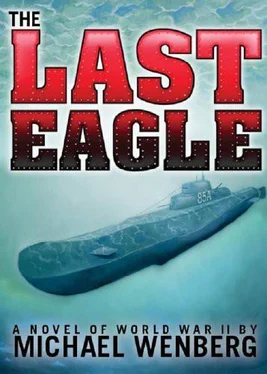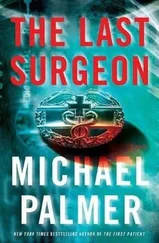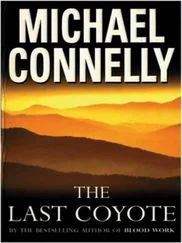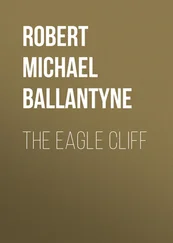There was a sudden jerk. Steel plating screaming in protest, and the Eagle suddenly slipped off the rocks. Stefan heard shouts of joy drift up out of the conning tower hatch opening. “Rudder hard right,” Stefan screamed in the sound tube, unable to take his eyes from the onrushing bombers, hoping they could hear him below. “Hard starboard!”
Diesels racing, the Eagle began to pivot out of the planes’ path, but it was maddeningly slow.
Stefan saw sparks stitch the underbelly of the first bomber. The submarine’s fire was finding its target, though the plane didn’t seem to notice any more than a dog would notice a handful of mosquitoes feeding on its hindquarters.
Stefan held his breath as the bomber dropped its cargo. Nothing he could do now except wait and watch. The bombs tumbled lazily through the bright morning air, like dirt clods lobbed by a child at a distant adversary. As Stefan estimated the bombs’ trajectory, time seemed to dilate, their flight slowing to a crawl, each metal-encased explosive becoming distinct and perfect. Stefan felt a profound sense of resignation and regret when he realized it was too close call.
When the first two bombs landed meters short, plumes of water erupting high in the air, he was overwhelmed with a sense of relief almost too much to bear. He ducked involuntarily as the next two sailed past the conning tower and flew into the shoal that moments before had held the Eagle it its grasp. Their explosions sent a cascade of water and pulverized rock into the air, the rock peppering the sides of the conning tower like pebbles thrown by a gang of bullies.
Stefan hollered into the voice tube: “Now forward. Full speed. Rudder hard port.”
The next bomber was closing fast. The pilot had adjusted his path, dropping altitude and following the Eagle as she backed off the rocks and turned. He obviously expected her to continue in reverse, but the Eagle slowed to a stop and then, screws churning madly, began to move in the opposite direction, gaining speed with each revolution. The AA gun opened fire again. Stefan saw black dots appear along the wing and then march toward the port engine. There was a puff of smoke from the engine; the propeller began to slow; the wing dipped, pulling the plane toward port. As the pilot struggled to keep the plane flying with just one engine, the bombardier released the bombs, but too late. They fell harmlessly starboard of the Eagle . The bomber screamed by overhead, still losing altitude; her tail gunner opened fire, gouging wood chunks off the deck. The Eagle’s AA crew returned the favor, pouring fire into the heavily armored Russian bomber. But at closer range, the gun began to have deadly results. Stefan watched the canopy shatter, the plane now low enough to see frantic movements in the cockpit. She continued to lose altitude, the port engine streaming pale flames. The conning tower AA gun fell silent, and everyone on deck watched as the bomber’s port wing touched the surface of the Baltic. Friction ripped the wing from the fuselage as easily as a cook plucking feathers from a duck. The bomber cartwheeled into the water, flying apart as she spun, and then finally stopping in a shower of spray and debris.
Except for the distant hum of the other bomber and the sound of the Eagle’s own diesel engines, all sound of combat ceased, he sudden fury of the previous moments passing like a summer storm.
“Let’s go,” Stefan yelled into the sound tube. “New course One-nine-five. Rig ship for dive. Clear the bridge.”
There would be more planes. And soon. No doubt the remaining pilot had already radioed for reinforcements. But the Eagle had survived—for the moment. Another few seconds on the shoal, and the Eagle would have been smacked by two bombs, and probably more from the following bomber. They had been lucky. Stefan knew it was time to make for England.
The AA crew retracted their gun back into its watertight compartment. The deck gun crew plugged the muzzle and locked down their gun, and then tumbled back down the forehatch like rabbits into a hole.
Stefan waited until the foredeck was awash. He gave one quick look around, noted the smudge of two approaching ships against the gray sky and above them, three dark specks. More bombers. No surprise. The Russians would scramble every available warship. Probably the Finns and the Swedes, too. They would have uninvited company overhead before long. He took a last deep breath of the fresh air, savoring the sweet taste on his tongue like a warm piece of fruit. Just before the water began rushing in, he ducked into the ship, pulling the hatch tight.
Admiral Karl Dönitz pushed away his plate, touched his stomach slightly, and then belched. All of his favorites. Warm potatoes coated in cheese, two fat brats, juice oozing from breaks in their skins, and steamed baby carrots covered in brown sugar and butter. A mug of hearty Bavarian beer to wash it all down.
He belched again, pushed over one of the sausages, noticing, for the first time, their similarity to the shape of a submarine. Of course, it was too symmetrical for the shape of the current generation of submarines, which were still not much more than surface vessels that could operate for periods of time underwater. But he had been excited by some of the newer designs. They did, indeed, look more like sausages, long, smooth, and rounded, so they could slip more easily through the water. With better batteries, and some of the other ideas they envisioned, German submarines would someday stay underwater for days, racing along at speeds rivaling the fleetest fish in the sea, and then diving to depths far exceeding the limits of current submarines. A weapon like that would revolutionize warfare. If the war lasted that long. Right now, those submarines lived only on drawing boards and the imaginations of German engineers.
He flicked the button on his intercom. “I’m done,” he said,pushing aside his plate Dönitz lit a cigarette and stared out at the blackness beyond his window.
A moment later, there was a light knock and then the door opened. His aide crossed quickly to Dönitz’s desk, the leather creaking on his boots.
“There is this for you, sir. Just in.”
The aide pushed a piece of paper across the desk, and when there was no further request or orders from his master, he spun on his heel.. He left the way he came in. The door latched with a soft click.
Dönitz sucked on his cigarette, faint hollows appearing on each cheek. He glanced at the paper. He already knew what it reported. The Eagle had attempted to torpedo a freighter south of Helsinki—what the hell were they doing up there?—and in the process ran aground. Russian forces were called. Bombers were unsuccessful in their initial attack. The search by sea and air units continued.
“Goddamnit,” Dönitz muttered. He admired pluck as much as the next man, but these Poles didn’t know when the fight was lost. Poland itself was just a week or so away from complete surrender. Warsaw was surrounded. German forces were shelling and bombing it incessantly, softening the city up before ground forces moved in, wiping out the few remaining fighters. And yet this submarine, this Eagle , kept fighting.
He knew of the bets made by his office staff. The ones who had placed their money on the Eagle making for Sweden were already counting winnings. Possibly. But Dönitz still thought it unlikely. There was something to be said for character, and surrender, even in the form of interment, was not in the character of this crew. No, they would make for the North Sea. Ritter was right about that. Dönitz had received requests for a change of orders from his forces in the Baltic. He made a mental note to tell them to keep searching with appropriate reminders of what failure would mean. No need, though, to contact Ritter. Dönitz smiled. Despite his failure with the Eagle in Tallinn, he was one of his best men. He understood the power of character.
Читать дальше












